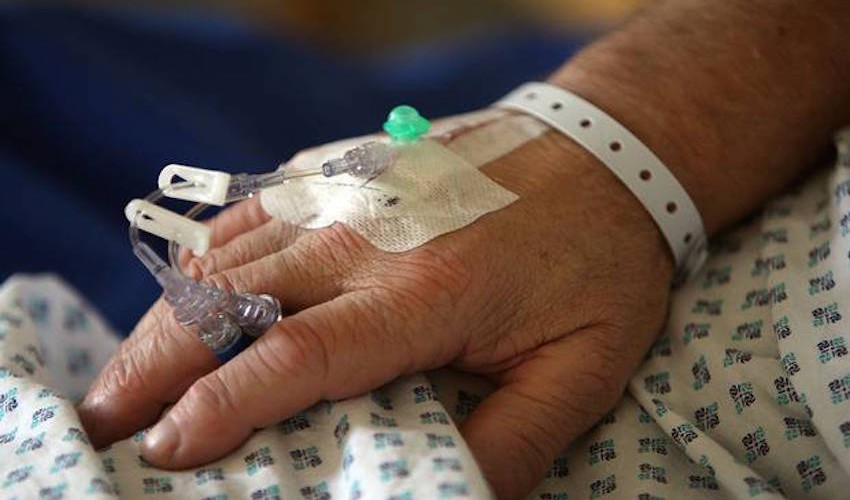Earlier this year I noticed a mole. Small and indistinct, I didn’t think much about it. But, as part of my New Year tune-up, I decided to go for a general check-up with my local GP.
Typically of the National Health Service (NHS) in England, access to non-emergency appointments is slow. At my local practice, if your case is ‘non-urgent’ patients are subject to a wait of up to two weeks, unless you are willing to call before 9:00 am to see if you can get in on the same day. I was not, and so I waited. On Friday afternoon at 5:30 I was ushered into my doctor’s office.
After some oohing and ahhing over the state of my general health we moved onto my mole. My doctor’s face clouded over. “This doesn’t look good to me”. His words, not mine.
From experience I can now say that it is in emergencies that the NHS comes into its own. For all that I’d had to wait two long weeks to get in to see my doctor, for all that he had kept me waiting for another half hour as he saw to other patients, when things become urgent, the NHS kicks into hyper-drive.
Pictures were taken. Words like ‘cancer’ and ‘melanoma’ were said. Having been told there was only one slot available to see my doctor two weeks before, I was now presented with an array of appointment options, from a list of 3 specialist clinics across London. I opted for the dermatology department at UCL hospital, and suddenly, on a Friday afternoon at 6pm, I had an appointment for a dermatoscopy and bioscopy for the following week, that quick.
I am unspeakably thankful for the NHS. I have been employed and unemployed, in good jobs and bad, but I have never had my employment, place of employment or lack of employment act as a factor in my healthcare options. Elsewhere, in countries like South Africa and China (and until recently, the US), this is not so.
I am looking at my little appointment slip now, and wondering what my future will hold. Whatever happens, I know my treatment options will not be curtailed or determined by cost or the comprehensiveness of my insurance coverage, only by medical need.
Tomorrow there will be a General Election in the United Kingdom. For the sake of the NHS alone, I know who I will be voting for. Because the Conservative Party record on the NHS leaves me angry. In fact, it has undermined the ability of the NHS to treat me at all.
We may joke about the premise of shows such as Breaking Bad, but it is true: if not for a National Health Service many more people in the UK would needlessly suffer and die, whether from a decision to delay a mole check because of the expense of a doctor’s appointment, or because of a lack of any kind of health insurance at all.
According to the NHS’ own figures, the English health system is facing a funding shortfall that by 2020 will amount to £30 billion. This is because demands on the NHS are increasing, but its budget is not. The causes of this increase in demand are threefold: our population is growing (more people to treat), technological advances have expanded the range of illnesses we can treat, and our society is aging, but not getting healthier.
It is this last fact that is the kicker: people are living longer, but far unhealthier, lives. 70% of the NHS’ budget is now spent on treating people with long-term illnesses that are influenced by poor lifestyle and diet, illnesses such as diabetes, COPD (smoking) and heart disease. These illnesses are chronic, which means they cannot be cured. Instead they can only be managed, at cost, for the duration of a person’s life.
So why does this make me angry?
Because, in 2011, the NHS had a plan to address this funding crisis. Called the Nicholson Challenge, its plan was to save the NHS £20 billion by 2014, without asking for an increase in funding. That’s right, the NHS had a plan to cope with a massive increase in demand without costing us a dime.
The plan had three strands: strand one was to invest in public health in order to prevent people from falling into the chronic illness trap in the first place. Strand two consisted of integrating health and social care in order to better address mental health and illnesses such as dementia. Whilst strand three consisted of shifting the care of these patients out of the hospital and into the community, a cheaper option and one which would be better for patients.
But in 2011, the Conservative Party’s Health Minister, Andrew Lansley, had a different plan. A plan for a new structure for the NHS which would introduce more competition and privatisation into the system. In short, instead of spending time addressing the country’s long-term health challenges and the NHS’ funding crisis all in one go, the NHS was asked to expend its energy on re-structuring itself. Over the course of three years an entire system covering healthcare commissioning, care, accountability, regulation and education was dismantled and re-built, at a cost of £1.3 billion.
We know now, from the evidence gathered by academics, think tanks and former heads of the NHS itself, that the Conservative Party reforms introduced as part of Andrew Lansley’s vanity project were deeply damaging to an already weakened system.
As the think tank the King’s Fund put it: “Historians will not be kind in their assessment of the coalition government’s record on NHS reform. The first three years were wasted on major organisational changes when the NHS should have been concentrating on growing financial and services pressures. This was a strategic error.”
My plea to whatever government is in power come next week is for there to be no more intervention. It is now 2015, not 2011, and the NHS has only just recovered from its last restructure. A new plan for the NHS’ recovery was published at the end of last year. Entitled the 5 Year Forward View it reads a lot like déjà vu. Its plan is to put in place £30 billion worth of savings by 2020 through a renewed focus on public health, a merging of health and social care and a movement of treatment from the hospital to the home.
Without any more meddling, this time it just may stick.
Tags: health NHS politics
























0 Comment